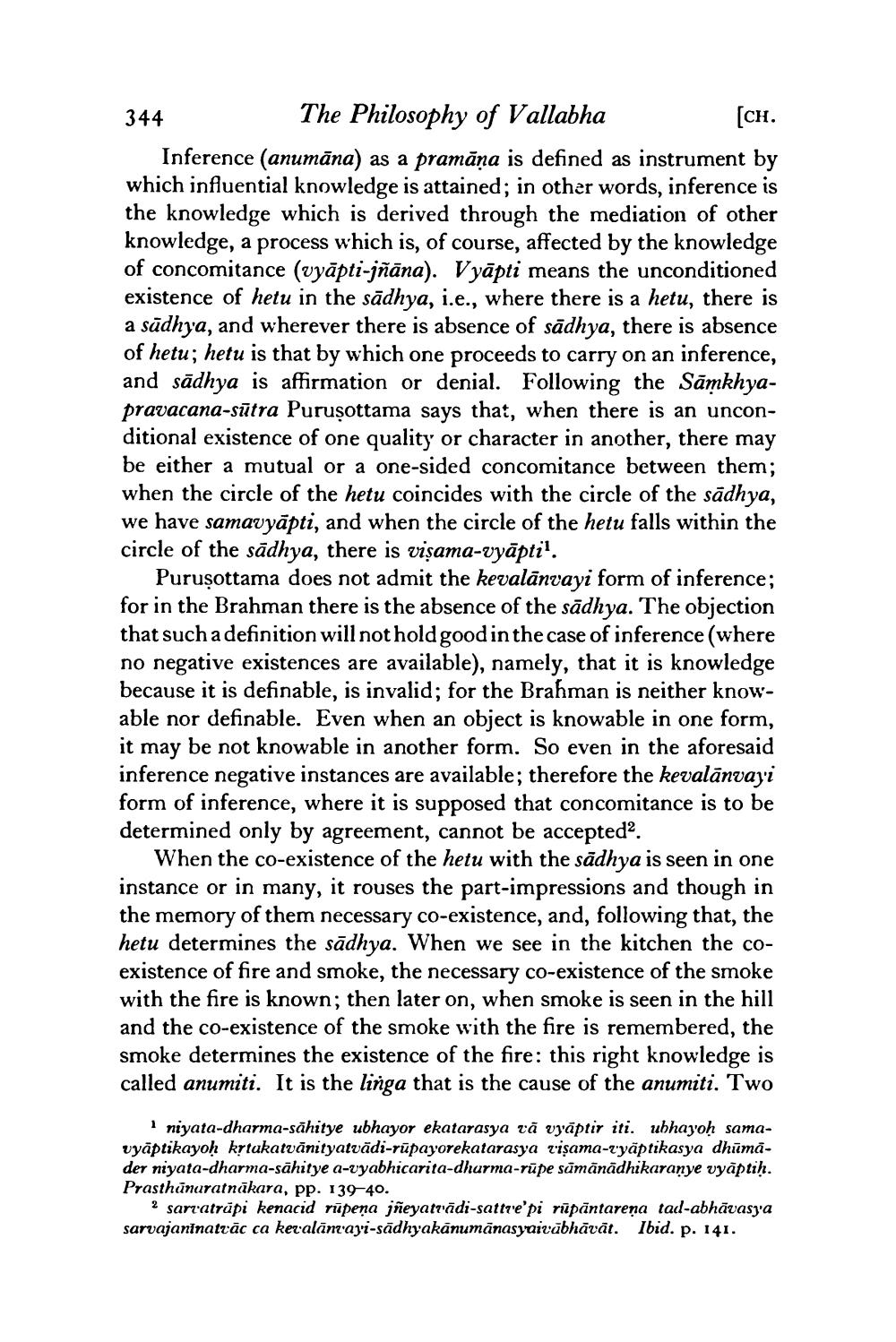________________
344 The Philosophy of Vallabha
[CH. Inference (anumāna) as a pramāņa is defined as instrument by which influential knowledge is attained; in other words, inference is the knowledge which is derived through the mediation of other knowledge, a process which is, of course, affected by the knowledge of concomitance (vyāpti-jñāna). Vyāpti means the unconditioned existence of hetu in the sādhya, i.e., where there is a hetu, there is a sādhya, and wherever there is absence of sādhya, there is absence of hetu; hetu is that by which one proceeds to carry on an inference, and sādhya is affirmation or denial. Following the Sāmkhyapravacana-sūtra Purusottama says that, when there is an unconditional existence of one quality or character in another, there may be either a mutual or a one-sided concomitance between them; when the circle of the hetu coincides with the circle of the sādhya, we have samavyāpti, and when the circle of the hetu falls within the circle of the sādhya, there is visama-vyāptil.
Puruşottama does not admit the kevalānvayi form of inference; for in the Brahman there is the absence of the sādhya. The objection that such a definition will not hold good in the case of inference (where no negative existences are available), namely, that it is knowledge because it is definable, is invalid; for the Brahman is neither knowable nor definable. Even when an object is knowable in one form, it may be not knowable in another form. So even in the aforesaid inference negative instances are available; therefore the kevalānvay'i form of inference, where it is supposed that concomitance is to be determined only by agreement, cannot be accepted.
When the co-existence of the hetu with the sādhya is seen in one instance or in many, it rouses the part-impressions and though in the memory of them necessary co-existence, and, following that, the hetu determines the sādhya. When we see in the kitchen the coexistence of fire and smoke, the necessary co-existence of the smoke with the fire is known; then later on, when smoke is seen in the hill and the co-existence of the smoke with the fire is remembered, the smoke determines the existence of the fire: this right knowledge is called anumiti. It is the linga that is the cause of the anumiti. Two
niyata-dharma-sāhitye ubhayor ekatarasya tā vyāptir iti. ubhayoḥ samavyāptikayoh kytakatvānityatvādi-rūpayorekatarasya tişama-z'yāptikasya dhimader niyata-dharma-sāhitye a-vyabhicarita-dharma-rūpe sâmānādhikaranye vyāptih. Prasthūnuratnākara, pp. 139–40.
2 sarvatrāpi kenacid rūpena jñeyatrādi-sattr'e'pi rūpāntarena tad-abhāvasya sarvajaninatrāc ca keralāntayi-sādhyakānumānasyairābhāvāt. Ibid. p. 141.




